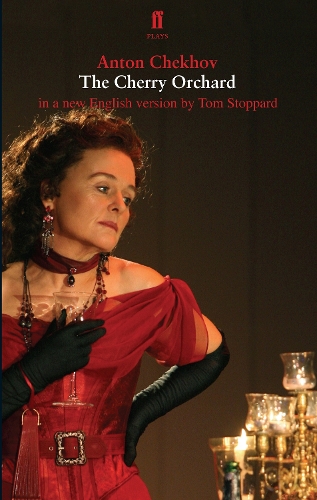
The Cherry Orchard
(, Main)
Available Formats
Hardback
Published: 15th September 2010
Paperback
Published: 15th September 2010
Paperback, New Edition - New ed
Published: 1st August 2006
Paperback
Published: 8th September 2022
Paperback
Published: 1st August 2016
Paperback, Main
Published: 7th July 2011
Paperback
Published: 13th October 2017
Hardback
Published: 17th March 2021
Paperback
Published: 1st August 2006
Paperback
Published: 6th March 2018
Paperback
Published: 24th May 2024
Publishing Details
The Cherry Orchard
By (Author) Anton Chekhov
Translated by Tom Stoppard
Faber & Faber
Faber & Faber
10th August 2009
Main
United Kingdom
Classifications
General
Non Fiction
891.723
Physical Properties
96
Width 129mm, Height 198mm, Spine 8mm
100g
Description
The play focuses on an aristocratic Russian woman and her family as they return to the family's estate (which includes a large and well-known cherry orchard) just before it is auctioned to pay the mortgage. While presented with options to save the estate, the family essentially does nothing and the play ends with the estate being sold and the family leaving to the sound of the cherry orchard being cut down. The story presents themes of cultural futility - both the futility of the aristocracy to maintain its status and the futility of the bourgeoisie to find meaning in its new found materialism. In reflecting the socio-economic forces at work in Russia at the turn of the 20th century, including the rise of the middle class after the abolition of serfdom in the mid-19th century and the sinking of the aristocracy, the play reflects forces at work around the globe in that period but does not represent the true feeling of many aristocrats at the time.
Author Bio
Anton Pavlevich Chekhov was born on January 17th, 1860, in Taganrog, Russia.
To this day, Chekhov's literary reputation primarily rests with his short stories, and Chekhov's early plays, written primarily in his early 20s, are not well-remembered. It was only in 1896 that he began to turn his attention back to drama; in the eight remaining years before his death, he managed to complete four plays: The Seagull, Uncle Vanya,The Three Sisters, and The Cherry Orchard. Chekhov was the in-house playwright for the Moscow Arts Theatre, which had been founded by his friend Vladimir Nemirovich-Davchenko. During this time, he fell in love with one of the Theatre's leading actresses, Olga Knipper, and would marry her in 1901. Chekhov wrote his last two plays after he had been diagnosed, in 1898, with tuberculosis. The Cherry Orchard itself was written over a period of more than two years, from early 1901 to late 1903, during which Chekhov was often in doctor-imp
